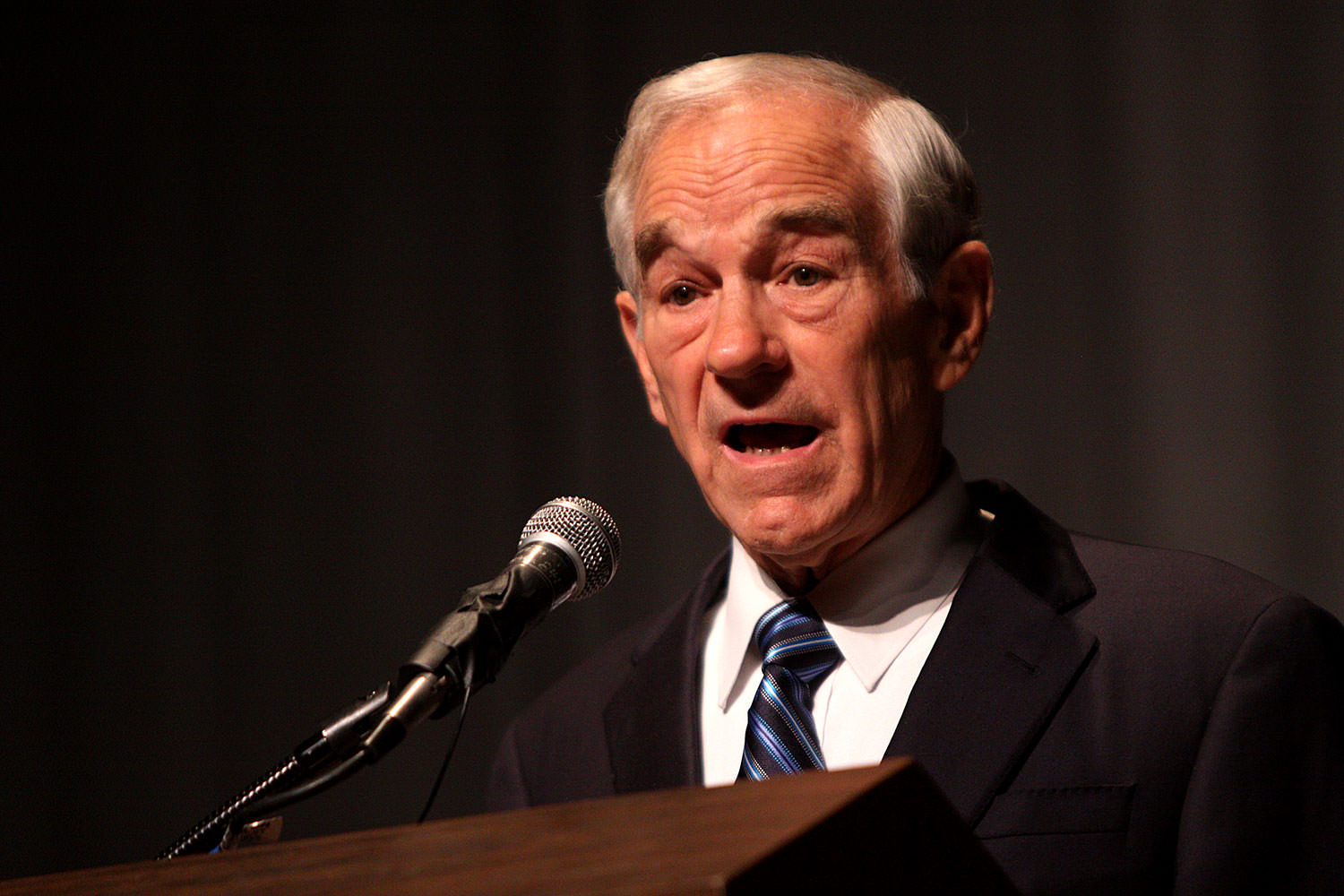Many of us are familiar with the phenomenon of “dorm room philosophy” and its derivative field, “dorm room economics.” Often, it is rooted in the clunky prose of Ayn Rand and the simple, common-sense decrees of Austrian economics, along with the limited life experience common to all young people — particularly young men. Rand’s “objectivism” and its consorts help to simplify a complex world through pat assurances: communism is very bad, and bankers are usually up to no good.
So alluring is this worldview, it is tempting for some to use it as the foundation for their social reality. Organizations ranging from the Mont Pelerin Society to the Cato Institute to Elizabeth Clare Prophet’s Church Universal and Triumphant are each built on the work of Hayek, Friedman, Rothbard, and Mises.
Embedded within these social milieus is the idea of an inevitable reckoning with the cabal of shadowy globalist bankers that has spoiled humanity’s chances for peaceful, gold-backed commerce. So it is not surprising that accelerating this reckoning is at the heart of the global right’s plan for world domination.
Recently, I revisited warfare expert James Scaminaci’s excellent research from 2013 outlining what he calls the “North-Paul Strategy” advanced by Ron “End the Fed” Paul and his strategist Gary North. The plan predicts massive inflation that will accelerate the collapse of the Federal Reserve and the dollar, thus enabling the libertarian-right to seize control of and “fix” the monetary system.
Per Scaminaci, North wrote that “God’s judgment, which is pro-revolution, will produce a cataclysmic collapse of the American political-economic system,” and that the “unbiblical financial system will not be reformed without a near-revolutionary crisis (the judgment of God).”
But the idea of sparking a collapse to seize control goes back further. Lyndon LaRouche was pushing the same set of ideas in 1997. Dubbed “The New Bretton Woods,” LaRouche sought to usher in a new, third iteration of the Bretton Woods banking system established in 1944 and then altered (to some, defiled) in 1971 with Nixon’s total abandonment of the gold standard. This Bretton Woods 3.0 would restore the idea of asset-backed currencies and subjugate the “banksters” once and for all — with the latent anti-Semitism being barely concealed.
LaRouche’s ideas might have been only a footnote, but for the alliances he cultivated with Sergey Glazyev, a Russian economist and politician who is now architecting Putin’s plans for a BRICS-bloc asset-backed common currency. LaRouche and Glazyev were close, and Glazyev co-founded the Rodina (Motherland) party with Aleksandr Dugin. Glazyev also serves on the board of Dugin’s Katechon think-tank, and is himself advocating for Bretton Woods 3.0.
Just yesterday, I visited the “Rage Against the War Machine” rally at the Lincoln Memorial. Organized by the Libertarian Party, the People’s Party, and the Schiller Institute (run by LaRouche’s widow, Helga Zepp), it was thick with leafleteers pushing LaRouche messaging and featured speeches by two dozen or so Putin-friendly speakers, including presidential candidates Jill Stein, Dennis Kucinich, Tulsi Gabbard, and Ron Paul.
One speaker led the crowd in a chant, “all wars are bankers’ wars,” bringing things full circle: the assertion being that it is only because we have departed from pure, good, and undefiled Austrian economics and the gold standard can (usually Jewish) bankers print the money required to fuel endless war. It seems no one at this anti-war rally had arrived at the most obvious solution: tell Vladimir Putin to withdraw his troops and go home.
Paul, the final live speaker of the day, predictably took the podium to chants of “End the Fed” with a phalanx of Russian flags behind him in the afternoon light. (Ironically, the Eccles Federal Reserve building, barely a block away, is undergoing renovations.)
The North-Paul strategy seems to be alive and well. The most obvious strategy to achieve it would be to crash the global economy by failing to raise the debt ceiling. Kevin McCarthy has repeatedly and explicitly stated his intent to pursue this, and the Washington Post recently reported that the strategy has been developed by former Trump budget director Russell Vought. But two things stand in his way.
First, reality is not conforming to the simple edicts of Austrian economics. In the North-Paul-LaRouche-Glazyev playbook embraced by McCarthy and Vought, there should be blood in the streets right now. Inflation should be spiraling out of control (it’s not), financial markets should be collapsing (they’re not), Ukraine should be losing (it is not), and Europe should be frozen into submission (it is not). Many complex systems have adapted and the world (particularly the West) is more resilient than they imagined.
The second is a collective action problem: it is difficult to get a large number of people to act against their self-interest in service of ideology alone. While the House Freedom Caucus has some cult-like properties, it has not yet achieved a Jonestown or Heaven’s Gate level of solidarity. It also only comprises about 45 out of 435 seats in the House. And while it might feel good to accelerate the day of reckoning and usher in all the prophecy that comes with it, no one, not even House Republicans, enjoys seeing their 401(k)’s decimated.
The price of gold is one possible measure of how close McCarthy might come to blowing up the global economy. It peaked on February 1st at about $1,950 per ounce and has retreated since. That seems like a good sign. Perhaps if real-world conditions were closer to the North-Paul prognostications, the radical right might be closer to pulling the trigger and shooting the hostage.
Ultimately at issue is whether Austrian economics is useful for describing the real world. Evidence tends to suggest that it is more useful for building networks of people who wish the world was less complex than it is. But the fact that so many people in positions of power believe this mythology and are willing to take actions to prove its value should continue to give us pause. Just because a belief system is flawed doesn’t mean it isn’t dangerous. Indeed, danger is often directly proportional to popular appeal.
Dave Troy is an investigative journalist focused on exposing threats to democracy. Based in Baltimore, his background as a technologist with an interest in studying online extremism affords him a unique perspective. His work has appeared at MoMA in New York, and he is a fellow with New America Foundation’s Future Frontlines. Dave writes regularly about information warfare, history, and politics. He is the host of the podcast Dave Troy Presents, and speaks regularly at conferences on disinformation, extremism, and information warfare. Contact information is available at davetroy.com.







0 Comments